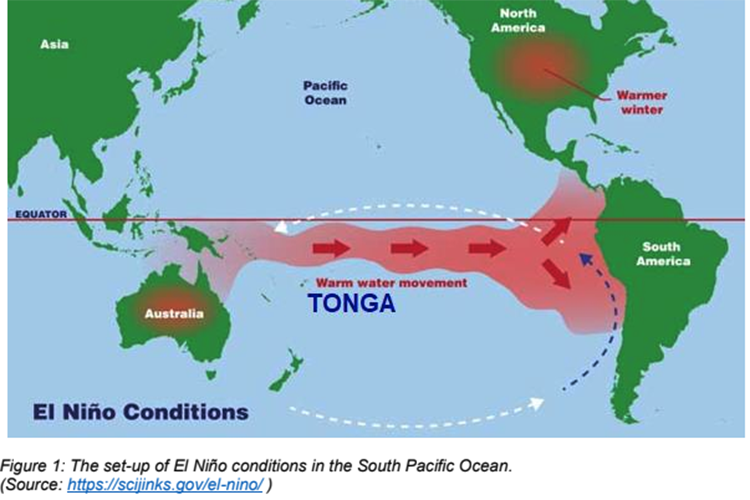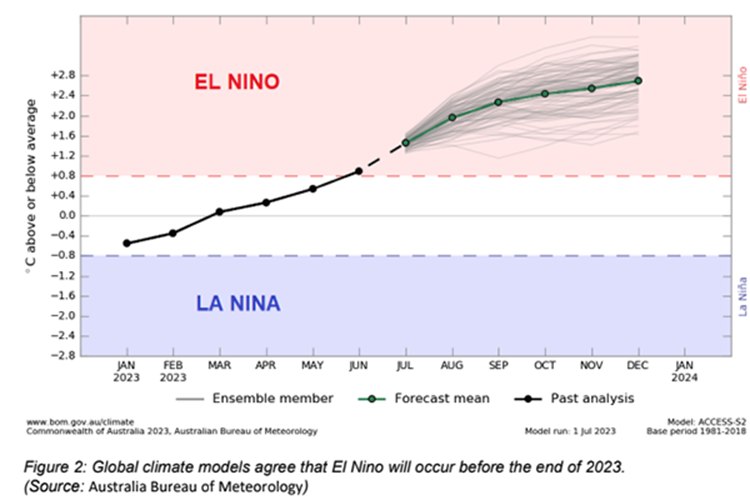
An El Niño alert for Tonga was issued by the Meteorology Department, on 14 July, as forecasts show there is a 70% chance of El Niño forming this year, with general agreement that El Nino will start in July to August 2023 time frame..
This means that the Central and Eastern Pacific Ocean is now warmer than usual.
If El Nino occurs in the coming months, the likely impacts on Tonga will include; cooler nights, less rainfall over the next 6-12 months, and more tropical cyclones in the next cyclone season (1 November 2023-30 April 2024).
Tonga's Department of Meteorology advised the country to carry out these necessary preparations, inorder to minimize the risks and impacts, for the next 3-6 months.
- Be updated with the latest El Nino updates from the Meteorology Department.
- Use rainwater wisely, especially for small island communities dependent on rainwater, and collect as much rainwater as possible when it rains.
- The health sector should prepare for disease outbreaks associated with cooler nighttime temperatures, drought and water contamination during cyclone events.
- The agriculture sector should deploy farming and livestock management methods associated with drought.
- The fisheries sector should prepare for a reduction in tuna and migratory fish species stocks, possible coral bleaching, and elevated chance of occurrence of algae bloom (red tides).
- The water sector should closely monitor ground water availability and quality.
- Emergency managers including village a district emergency management committees should activate preparatory phase of hazard response to drought and tropical cyclones.
- The infrastructure sector should prepare for a more active tropical cyclone season starting in November.
- Care givers should prepare for cooler nighttime temperatures, access to clean water and a likely increase in cyclone evacuation incidences in the next cyclone season.
- The utilities sector should prepare for a more active cyclone season starting in November.




